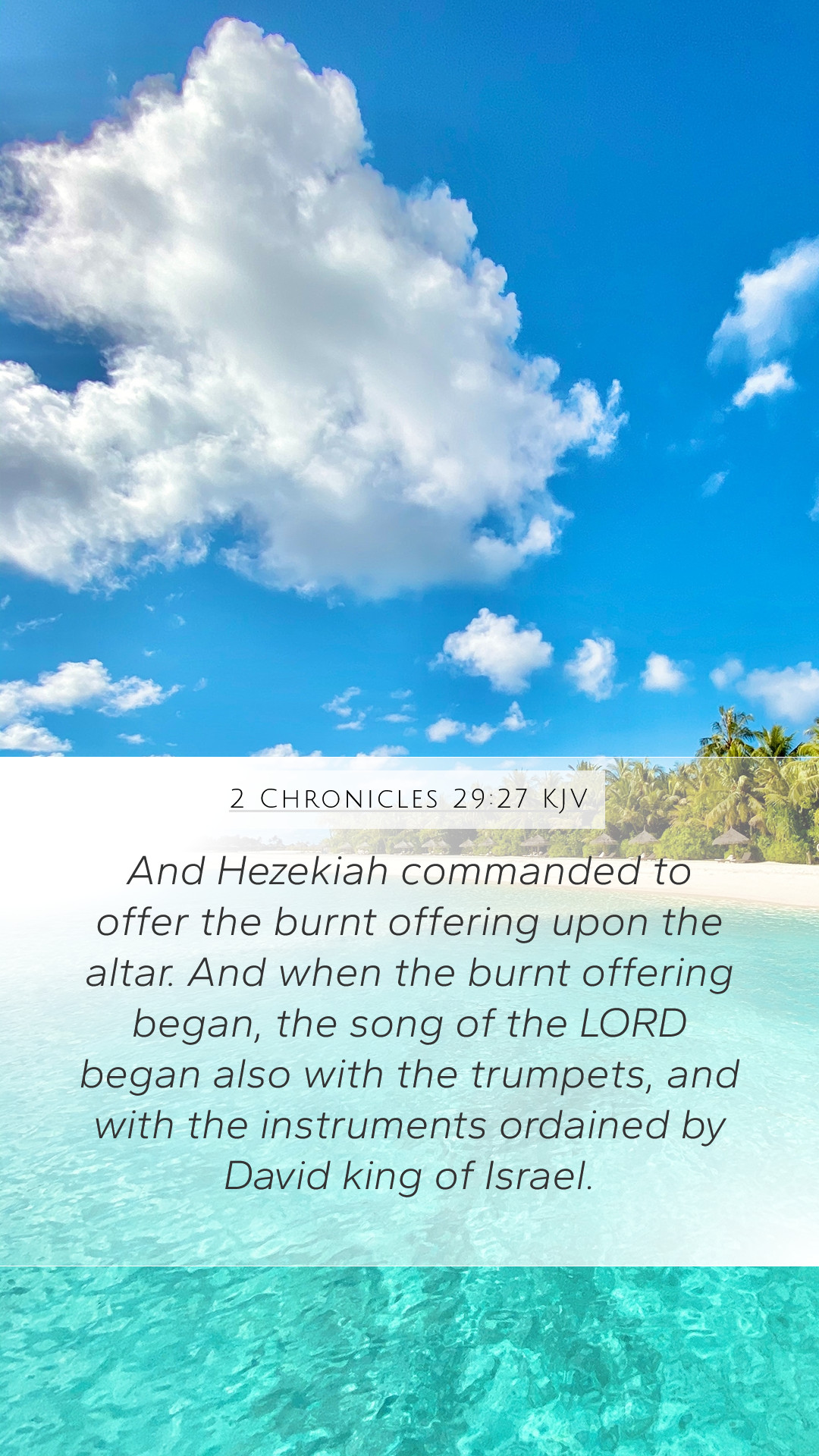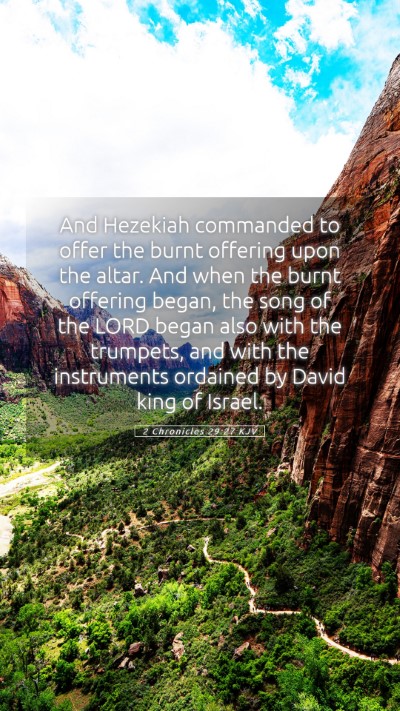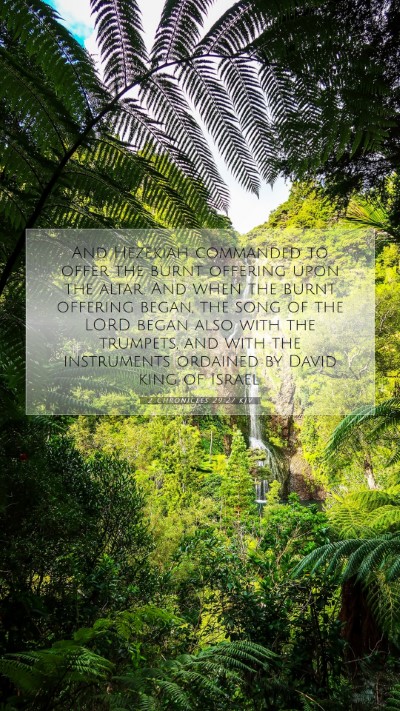Understanding 2 Chronicles 29:27
2 Chronicles 29:27 states:
“And Hezekiah commanded to offer the burnt offering upon the altar. And when the burnt offering began, the song of the Lord began also with the trumpets, and with the instruments ordained by David king of Israel.”
Bible Verse Meaning
This verse marks a pivotal moment in the reign of King Hezekiah of Judah, showcasing both restoration and worship. The act of offering burnt offerings signifies a return to true worship and the proper approach to God after a period of idolatry and neglect. The sound of the trumpets and instruments indicates a joyful and communal response to the offerings, highlighting the importance of music in worship.
Bible Verse Interpretations
- Restoration of Worship: Hezekiah’s command reflects a commitment to restore the temple practices that honored God, emphasizing the significance of returning to the covenantal obligations outlined in the Mosaic Law.
- Community Participation: The involvement of the people in this worship event illustrates a collective return to faith and obedience, suggesting that worship is both an individual and communal act.
- Symbolism of the Burnt Offering: The burnt offering represents total dedication and surrender to God, symbolizing the people's desire for atonement and reconciliation with their Creator.
Bible Verse Commentary
According to Matthew Henry, this verse exemplifies how Hezekiah galvanized the nation to return to God by reestablishing the sacrificial system that had fallen into disuse. He emphasizes that this act of worship was not merely a ritual but a sincere expression of the people’s faith and devotion.
Albert Barnes adds that the music accompanying the sacrifices was not incidental; it played an essential role in creating an atmosphere of reverence and celebration, drawing from the rich musical heritage established by King David.
Adam Clarke highlights the historical significance of this event as a demonstration of Hezekiah’s leadership in restoring proper worship, reinforcing the theological tenet that worship should align with God's established ordinances.
In-Depth Analysis
The actions of Hezekiah resonate deeply with themes found throughout the Bible: the call for repentance, the importance of worship, and the role of community in spiritual life. This verse reflects a transformative moment where past sins are acknowledged, and the people are again committed to honoring God.
Historical Context
During Hezekiah's rule, the kingdom of Judah faced significant spiritual decline due to idolatry. His reforms aimed to reclaim the people's hearts for God, making this verse foundational in understanding the revival of faith in ancient Israel.
Application for Today
For contemporary readers, 2 Chronicles 29:27 serves as a reminder of the importance of worship and community in spiritual life. It invites believers to reflect on their worship practices and consider how they can honor God through dedicated acts of service and communal gatherings.
Related Bible Cross References
- 2 Chronicles 7:1-3 - God's response to Solomon's dedication of the temple.
- Psalm 150 - A call to worship through music and instruments.
- Romans 12:1 - Offering ourselves as living sacrifices to God.
Conclusion
In conclusion, 2 Chronicles 29:27 encapsulates the essence of returning to God through sincere worship and community involvement. It serves as a powerful illustration of how dedicated offerings, paired with heartfelt music, can lead to communal restoration and spiritual renewal.
For Further Bible Study
This verse encourages readers to engage in deeper Bible study insights and Bible study tools that can enhance their understanding of Scripture. Consider joining bible study groups or utilizing online resources to explore themes of worship and restoration in greater detail. As you delve into the meaning of Bible verses, remember that understanding Scripture is a journey of both personal reflection and community learning.


